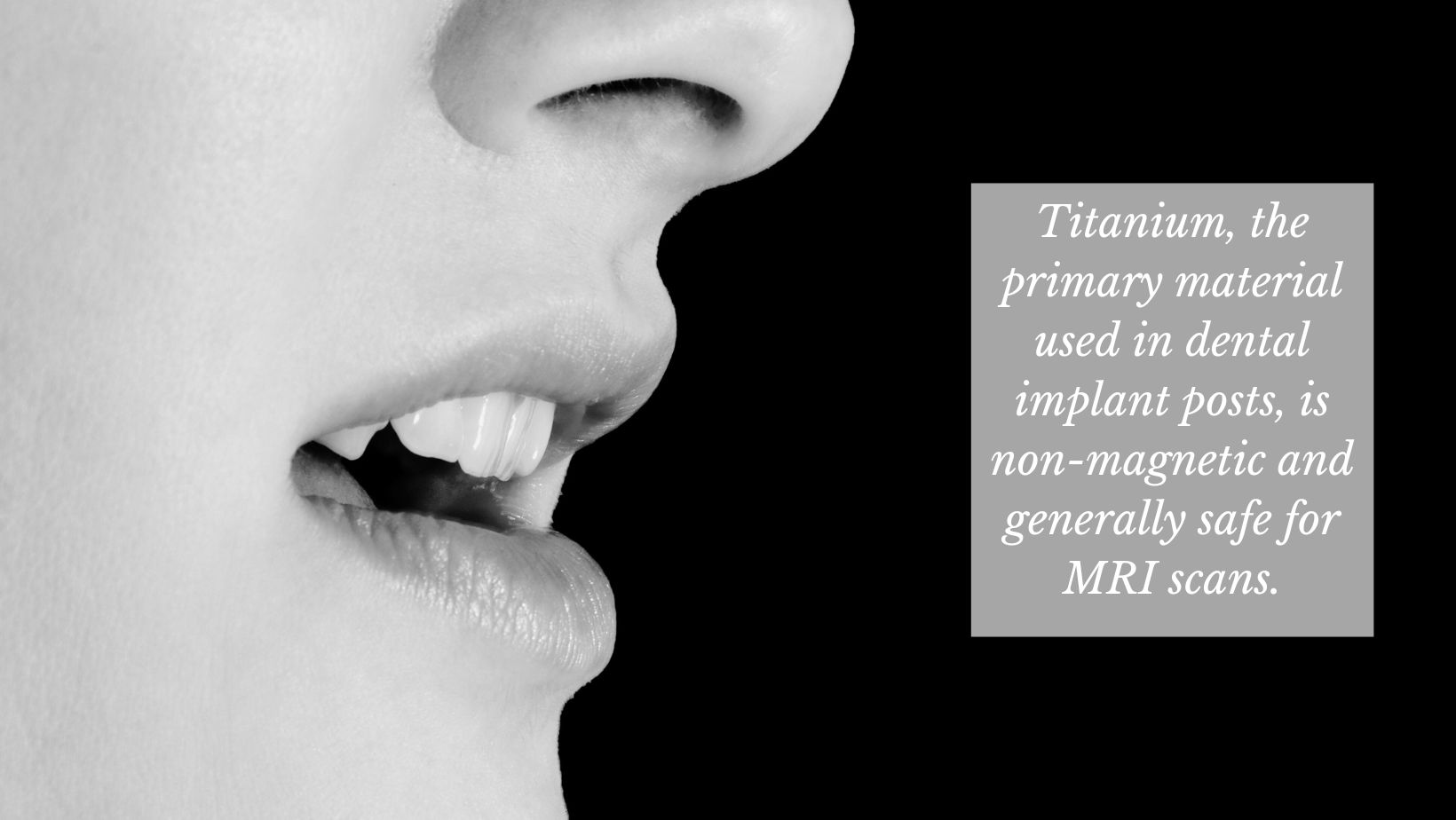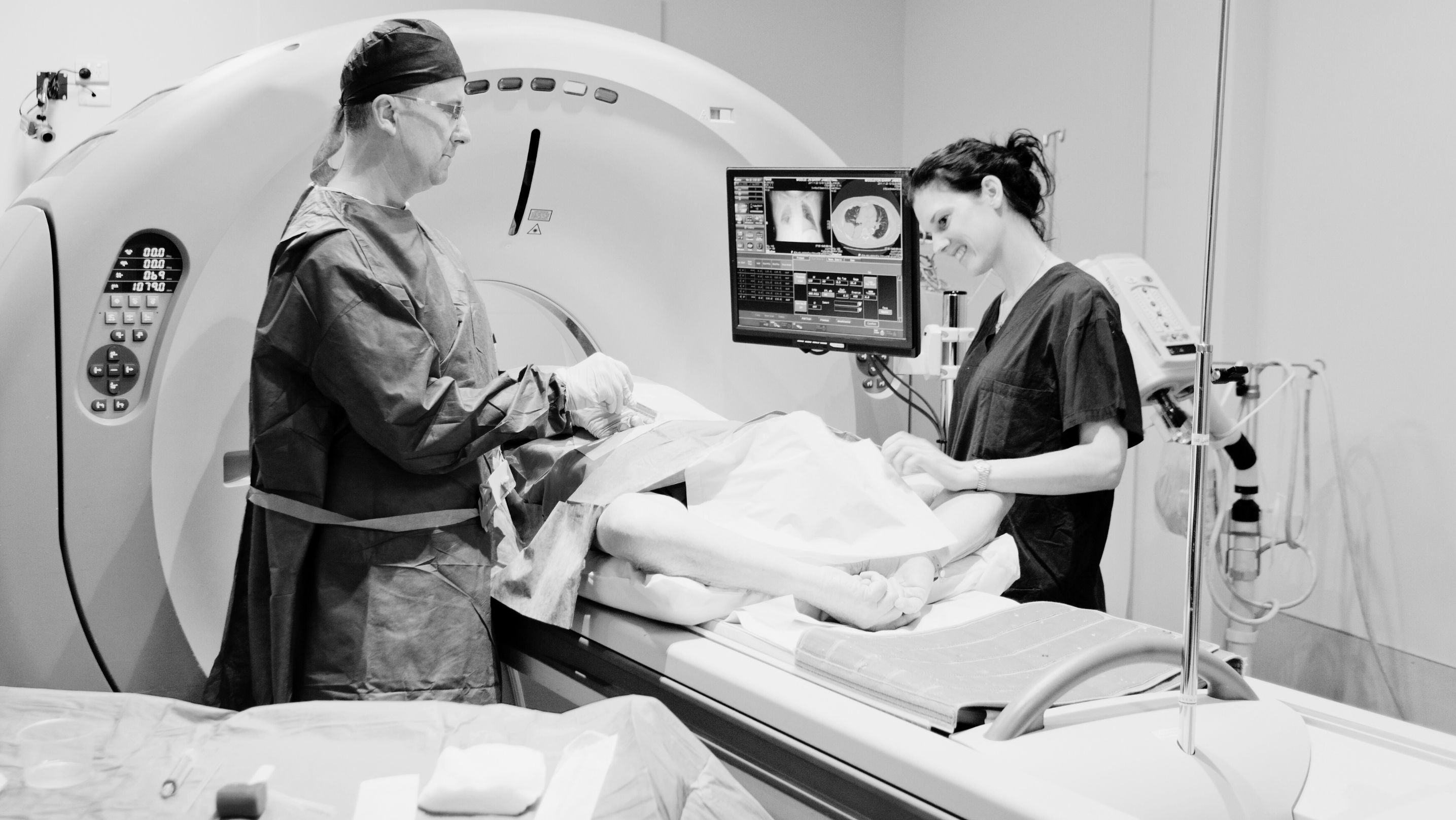If you have dental implants, concerns about undergoing magnetic resonance imaging (MRI scans) may come up since implants typically contain metal components. Your dentist will give you the lowdown on safety, but we will also provide some details to help you understand if there is cause for concern.
Understanding Dental Implants and MRI
Magnetic Resonance Imaging (MRI) is a non-invasive imaging technique that uses powerful magnets and radio waves to generate detailed images of organs, tissues, and bones within the body. Unlike X-rays or CT scans, MRI does not involve ionizing radiation, making it a favored choice for many purposes.
Dental implants are prosthetics used to replace missing teeth. They typically consist of an artificial tooth, also known as a crown, attached to a titanium post that’s surgically implanted into the jawbone. While titanium is compatible with the human body, other components of dental implants, such as screws or abutments, may contain what are called ferromagnetic materials, which can react to the magnetic fields used in MRI.
Factors that influence the compatibility between dental implants and MRI include:
- MRI Equipment: The strength of the magnetic field emitted by the MRI machine impacts compatibility with dental implants. Typically, lower-field-strength MRI machines pose a lesser risk.
- Implant Type: Some dental implant systems use magnetic components, which could pose a potential risk during MRI procedures.
- Implant Material: Titanium is the most commonly used in dental implants, which has a weak magnetic exposure, posing minimal to no risk in the MRI machine.
Why It’s Usually Safe to Get an MRI With Dental Implants
The primary concern regarding undergoing an MRI with dental implants is the potential for movement or heating of the metal components within the implant. The strong magnetic field of an MRI can add pressure on ferromagnetic materials found in the implant, leading to displacement or warping. Also, the radiofrequency energy used during the scan can cause the heating of metal objects, potentially resulting in tissue damage.
But can you get an MRI with dental implants? Yes! Fortunately, modern dental implants are designed with materials that minimize the above risks. Titanium, the primary material used in dental implant posts, is non-magnetic and generally safe for MRI scans. Manufacturers also take care to use non-ferromagnetic materials for other components whenever possible.

Some Recommendations For Dental Implant MRI Safety
Before undergoing an MRI with dental implants, patients need to inform their healthcare provider about their dental history and the presence of any dental prosthetics. A healthcare professional may request detailed information about the type and composition of the implants to assess the potential risks accurately.
In some cases, additional precautions may be necessary, such as using alternative imaging modalities or adjusting the MRI to minimize potential interactions with dental implants. A healthcare provider will work closely with the imaging team to ensure the patient’s safety and the accuracy of the diagnostic information obtained from the scan.
Consult Your Healthcare Providers If You Need an MRI and Have a Tooth Implant
The presence of dental implants should not prevent individuals from undergoing MRI scans when medically necessary. While there are potential risks associated with ferromagnetic components within implants, modern implant materials, and careful screening protocols help mitigate these risks. Open communication between patients, dentists, and healthcare providers is essential to ensure safe and effective imaging procedures for individuals with dental implants.
If you have concerns or questions about undergoing an MRI with dental implants, don’t hesitate to make an appointment with a dentist for personalized guidance and recommendations tailored to your specific needs.


